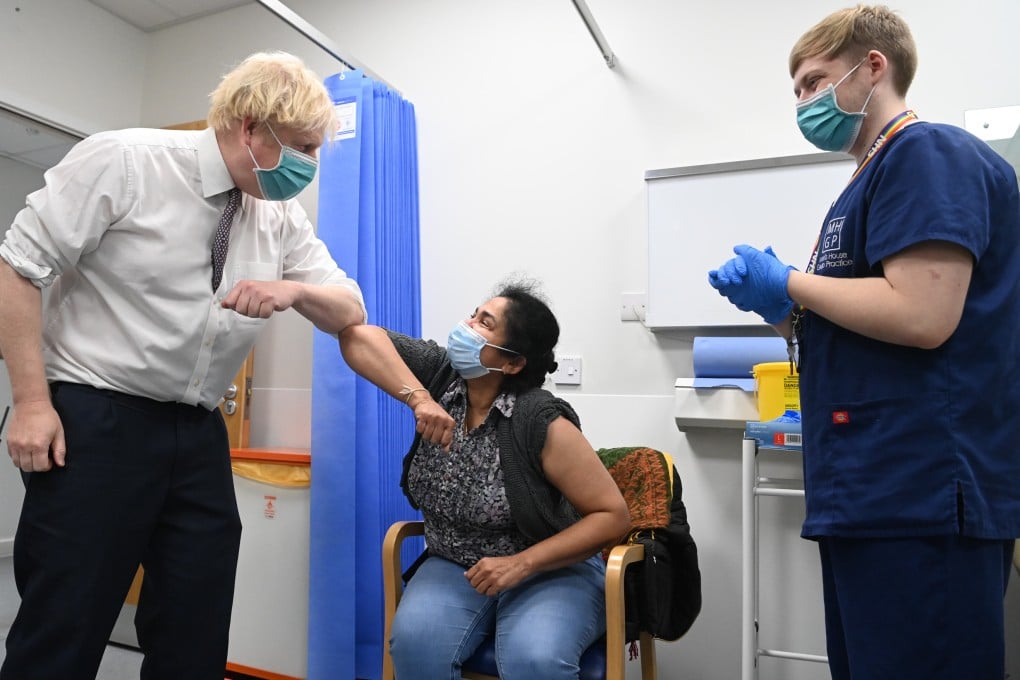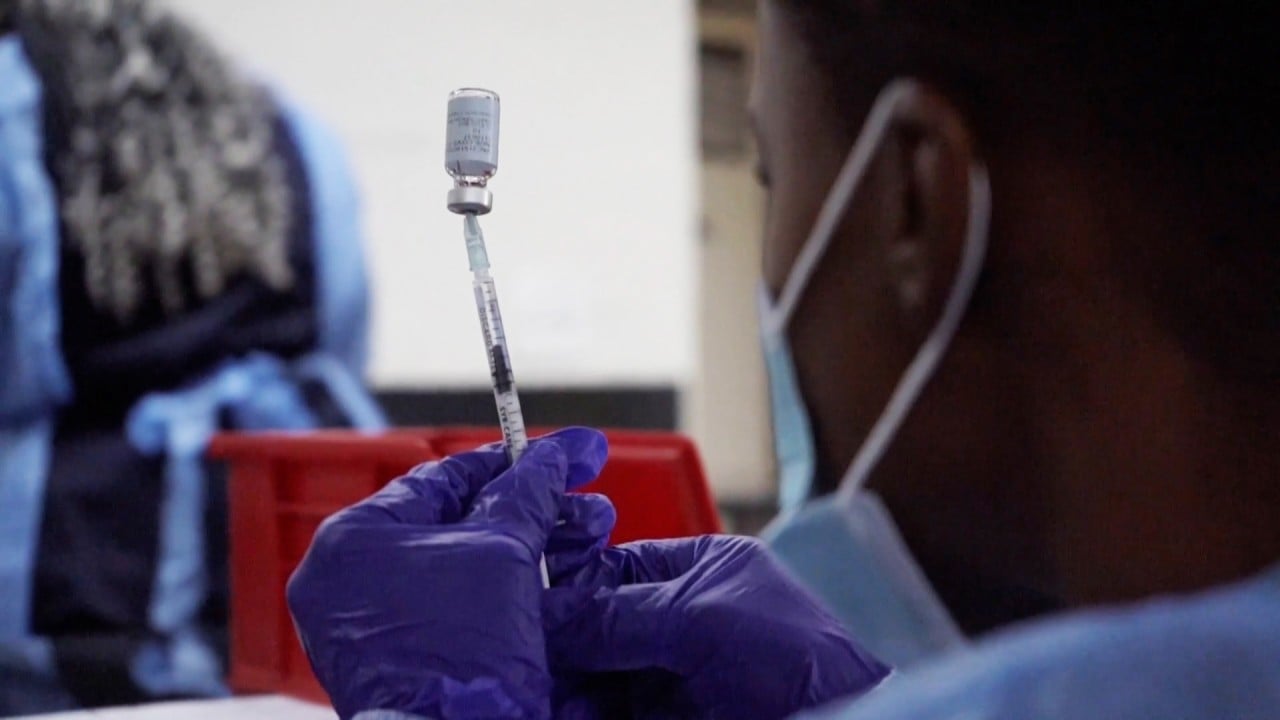UK launches vaccine booster blitz as Omicron coronavirus variant spreads
- A third dose will be offered to everyone 18 and up three months after the second shot, halving the current gap
- 22 cases of the new strain have been identified across the country, a number that is expected to rise

New measures to combat the Omicron coronavirus variant took effect in England on Tuesday, with face coverings again compulsory in shops and on public transport, as the government said it would offer all adults a booster dose of vaccine within two months to bolster the nation’s immunity.
From Tuesday morning, all travellers returning to the UK must also take a PCR test and self-isolate until they receive a negative result. Previously they had been able to take a lateral flow test and there was no quarantine requirement.
The reintroduction of mandatory face masks brings England closer in line with the rest of the UK – Scotland, Wales and Northern Ireland – which had kept some restrictions in place after England lifted all mandatory measures in the summer.
Prime Minister Boris Johnson said the new measures will “buy us time in the face” of the new variant. He said that while many people felt an understandable “sense of exhaustion” at the prospect of renewed restrictions, the UK’s position is “immeasurably better than it was a year ago”.
The government said Tuesday that 22 cases of the Omicron variant have been identified across the UK, a number that is expected to rise.
Much remains unknown about the new variant that was first identified in South Africa, including how contagious it might be. It contains a large number of mutations that scientists say may make it more resistant to current vaccines than the currently dominant Delta variant.
